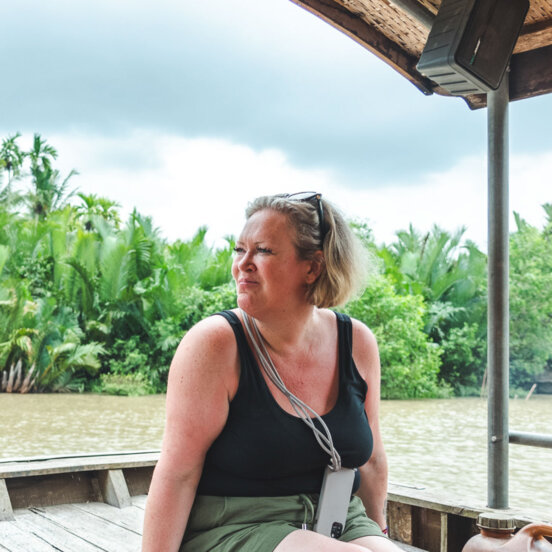I’m an introverted extrovert. Here’s how it’s allowed me to thrive in groups

I’ve been struggling with something for a while. I love people but they drain me. I like going out but I feel guilty when I need to be on my own. I see myself as outgoing but I’m also really happy with my own company.
What’s wrong with me? Well, I’m an extroverted introvert. A natural introvert but over time I’ve (subconsciously, it seems) developed my extrovert side to succeed in today’s society.
Let me explain. A few months ago, I was talking with my therapist about feeling guilty for needing time away from people. I have a big family, lots of friends. I work in a very sociable industry. Yet for some reason, all this seems to jar with me. I often feel like I want to run away – or that I need to.

I often feel like I want to run away – or that I need to
We talked about it for a while. We discussed how after a big presentation my colleagues would come out pumped and I would need to sit alone. How during the day, I’d make excuses to get out of the office, and even take longer in the loo than I needed.
The word “recharge” came up and that was exactly how I felt. Like I was a phone with a battery on red and needed the lightning bolt to get back to green before I could take on the next thing.
”Well, it sounds like you’re an introvert, which is all very natural and you shouldn’t feel guilty about it,” he said.

It’s actually about where you get your energy from
“How can I be an introvert?” I asked. “I thought introverts were shy people who didn’t like parties, avoided eye contact and found it hard to be around crowds. That’s not me. I’m often the loudest person in the room. I’ve always been the captain of the football team. Surely, of all people, I’m an extrovert.”
But it’s not that simple. It’s actually about where you get your energy from, not simply how loud or quiet you are. We are all a bit of both, but we are naturally more one than the other.
This theory comes from Swiss psychiatrist Carl Jung, one of the most influential people in psychotherapy in the 20th century – so we can probably trust him.

If you need to have people’s attention, you’re an extrovert
I still checked with Pamela Nell, a leading UK psychotherapist, just in case. “What Jung thought was that some of us mainly draw our energies from those around us. If you need to be with people and have their attention, you’re an extrovert. While those who draw energies from inside themselves and feel depleted when around people a lot are introverts. It’s really about how we relate to the world.”
Pamela continues, “These distinctions are not just interesting on a personal level, but in how we relate to other people in groups. If we don’t understand how others get their energy, there’s the potential to misunderstand them. For example, extroverts can interpret introverted behavior as being rejecting or rude. On the other hand, introverts can interpret extroverts as self-centred and narcissistic.”
It’s a little like how solar panels and wind turbines have different ways of collecting energy; one is passive, the other is active. Yet one’s no better than the other.

Being quietly confident wasn’t going to get me where I wanted
This got me thinking about why I turned out they way I have. The south London society I grew up in wasn’t designed for the introvert. As a kid, I was always quite happy on my own. I had a lot of self belief and I didn’t need people to tell me I was great. I knew if something I did was good (or wasn’t). In fact, I found it quite hard when I was told I was doing ok.
And compliments were (and still are) actually quite complicated for me. I sort of knew that society wanted me to want them. But, to be honest, I didn’t need them.
As I grew up I began to realize that being quietly confident wasn’t going to get me where I wanted to be. I’d see the loud ones always got the ball. The ones who asked the questions got the grades. The ones who approached the girls got the kiss.

I worked with Liam Gallagher and Tyson Fury through Talk Club
Around that time, I decided I wanted to work in advertising. But if I wanted to get into art college, then to the best agencies, I needed to change who I was. I needed to sell myself and become loud.
Since then, my belief is that society has made it harder to be introverted. Social media seems to dictate that the more we shout about ourselves, the more “likes” we get and the more popular and successful we are. But is that really true?
Recently, I was lucky enough to work with Liam Gallagher and Tyson Fury through my mental-health charity, Talk Club.

I would say Liam is a natural introvert and Tyson a natural extrovert
Both are showmen, both are known the world over. But from what I know of them – and Jung’s theory – I would say Liam is a natural introvert and Tyson a natural extrovert. Tyson has a massive entourage. His team are constantly reaffirming he’s the best, which fuels him.
With Liam, it’s just him and his partner Debbie. He stays out of the limelight (when he can) and the ‘wide boy’ on stage is his frontman persona.
So, possibly he too has had to adapt and become an extrovert to succeed at some stage, but is actually naturally an introvert. Or, an extroverted introvert, just like myself.

I can wear the role of Ben ‘the CEO of a charity I didn’t mean to start’
Ever since I was a teen, I felt I had to create a persona to get the jobs I wanted. I would wear loud shirts. I spiked my hair. I became my job title.
Even now I’m paid to talk about mental health, yet I’ve stood on stages in front of thousands and thousands of people and I can honestly say I’ve not enjoyed a second of it.
I know I’m good at it, so I continue to do so. But it knocks me out. I’ve been able to do it, because I can put on the jacket, the loud trainers, the sloganed T-shirt. I can wear the role of Ben “the CEO of a charity I didn’t mean to start.”

Once recharged, I’m like a sprinter exploding out of the blocks
But my advice is this: “knowledge is power.” If you know how to get your energy, you can harness when and how to use it effectively. My introverted nature means I don’t need anyone to give me my confidence. Once recharged, I’m like a sprinter exploding out of the blocks. I can be the showman. I can be the salesman. I can be what I need to be – but only for a short period of time. Then, I need to recharge again.
If you know that big crowds may overwhelm you, keep it small, focus on one person at a time. Because once you play to your strengths, you will undoubtedly succeed.
Apply your winning personality to a group setting with Flash Pack and other like-minded solo travelers in their 30s & 40s.
Got a story or adventure that could inspire a solo traveler like you? Tag @flashpack on social or email [email protected] to be featured.
Images: courtesy of Ben Akers










